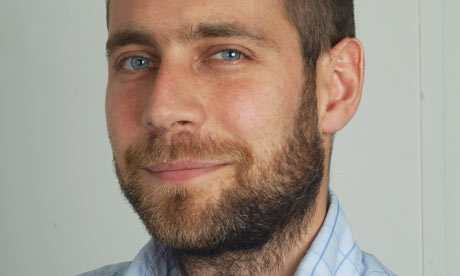The worlds of science, health and the environment provide a constant flow of thought-provoking, and sometimes life-changing, advances. Many of these don't make the mainstream press and if they do, the coverage can be formulaic or superficial. Blogs offer a much larger range of voices that have enriched the scientific conversation online and engaged new readers with a depth and style that is sometimes missing from mainstream media. This course will explore what makes a great blog.
Join a panel of the Guardian's most popular science bloggers for this lively introduction to the core skills of science blogging. Whether you want to blog for fun; as a sideline to work; to draw attention to a favourite subject; or as a way to break into journalism, this informal, seminar-style course will teach you the founding principles of good science blogging. Led by senior Guardian science and environment journalist James Randerson, the day features four guest speakers covering different aspects of successful blogging, from the theoretical, including finding great stories and making complex concepts relatable and entertaining, to the creative, such as establishing a personal style, and getting your blog noticed by an audience.
Course description
The event comprises a series of informal lectures from accomplished science bloggers in a variety of scientific fields – with an overview provided by the Guardian's editor responsible for science and environment content. There is no practical element to the course, but there will be extensive opportunities for questions from attendees.
- The rules of science writing – and when to break them
- Using the flexibility of the blog format
- Where to find stories
- How to build a community and an audience
- How to cover very technical subjects
- How to use humour in blogs
- Developing your own voice
- How to deal with trolling
- Roll of honour: tutors discuss their favourite blog posts
This course is for you if…
- You're a blogger or journalist who wants improve their writing about science
- You're a science enthusiast looking to break into journalism
- You're a scientist and want to talk about your personal subject with verve and inspiration for a wide audience
Please note that while no previous experience is necessary, attendees will be expected to be familiar with the basics of setting up a blog or social media feed. If not, consider attending our Blogging for absolute beginners course. If you are interested in science, health and environment journalism there is an evening masterclass on 17th March.
Speaker profiles
James Randerson is the Guardian's assistant national news editor with special responsibility for science and environment content. He has previously worked as the paper's science correspondent and as deputy news editor for New Scientist magazine. He also has a PhD in Evolutionary Genetics.
He has lectured on science, health and environment journalism to students at universities including City, Cardiff and Bath. He also has experience of training academics in how the media works. He directed sessions at the Sixth World Conference of Science Journalists in 2009 in London and at the UK Conference of Science Journalists last year.
Dean Burnett writes the popular science/humour blog 'Brain Flapping' for the Guardian science section. He has a PhD in behavioural neuroscience and works as a lecturer/tutor for Cardiff University's online MSc Psychiatry programme. He has previously worked as a bioscience technician and an embalmer of anatomy cadavers for a medical school. He has also been a stand-up comedian and comedy writer in various guises for almost 10 years.
Dean has written for the Guardian since 2012 and has also contributed to numerous science publications like Psychology magazine and BBC's Focus. He has also contributed to several BBC comedy radio programmes, and regularly speaks/performs at high profile events like the Uncaged Monkeys tour.
Suzi Gage is a PhD student in epidemiology, and a blogger for the Guardian Science network. She has been blogging throughout her PhD, and won the 2012 UK Science Blog prize. Suzi has lectured on blogging to researchers at the Universities of Bristol and Cardiff. She has also sat on panels discussing the value of science communication at the recent Spot On conference on digital science communication. She has won awards for her science communication from the University of Bristol and the British Association for Psychopharmacology.
Jon Butterworth is a Physics Professor at UCL and a member of the ATLAS experiment at the CERN Large Hadron Collider. He blogged his way through one of the biggest science stories of the last few years - the discovery of the the Higgs boson - whilst also working on the experiment, teaching undergraduates, and more recently, heading a university department. He has appeared on Horizon, has his name spoken meaningfully by Morgan Freeman on the Discovery Channel, and has been asked if the Higgs wasn't a waste of time by John Humphrys.
Book now
If you're using a mobile device, click here to book
Details
Date: Sunday 27 April 2014
Times: 10am-5pm
Location: The Guardian, 90 York Way, King's Cross, London N1 9GU
Price: £99 (includes VAT, booking fee, lunch and refreshments)
Event capacity: 100
Dress code: There is no dress code for Masterclasses. Please dress however you feel comfortable.
To contact us, click here. Terms and conditions can be found here.
Returns policy
Tickets may be refunded if you contact us at least 7 days before the course start date. Please see our terms and conditions for more information on our refund policy.




